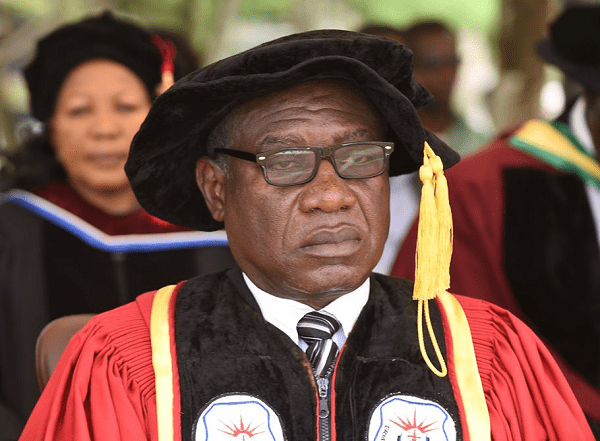
Methodist University dragged to court as 32 former employees want their benefits paid
Thirty-two former lecturers and non-teaching members of staff of the Methodist University College (MUC) have sued the university for terminating their employment.
In a suit filed at the Labour Division of the Accra High Court on December 17, last year, the plaintiffs averred that they were sacked as a result of a redundancy exercise, but the MUC failed to pay them a redundancy package.
It is the case of the plaintiffs that the MUC deliberately described their sacking as termination, instead of redundancy, to avoid giving them redundancy payments.
They have also accused the MUC of making it difficult for them to secure new employment because “termination sends a negative message to potential employers”.
Defence
The MUC, in its defence, contended that it decided to reduce the number of its employees due to a difficult operating environment, but refuted claims by the plaintiffs that the termination of their appointment did not follow due process.
In its statement of defence filed on January 17, this year, the college argued that the termination was in conformity with labour laws and the terms of conditions of the plaintiffs’ employment.
It is the case of the MUC that 14 of the plaintiffs, all lecturers, were contract staff and, therefore, they “constitute a category of employees exempted from redundancy payments”.
With regard to the rest of the plaintiffs, all non-teaching staff, it averred that they were each given “fair and adequate compensation”, including six months’ salary after the notice of termination had been served until the time it took effect.
Reliefs
The 32 former employees are seeking, among other reliefs, a declaration from the court to the effect that the termination of their employment was a redundancy, and a further declaration that they are entitled to “redundancy pay”, as required by law.
They, therefore, want an order from the court directed at the MUC to pay them “redundancy pay”, which should be calculated from the date of employment.
Also, they are seeking damages for what they describe as wrongful termination of employment, and an order for the payment of the salaries and other benefits which they are entitled to.
Counterclaim
The MUC, for its part, contends that the plaintiffs are not entitled to the reliefs they were seeking and has urged the court to dismiss them.
The defendant has also made a counterclaim in which it is seeking an order to compel one of the plaintiffs, Samuel Kwabi, to refund GH¢21,422, which it says is in excess of the entitlement the MUC should have paid him.
Termination
Court documents revealed that stringent admission requirements instituted by the National Accreditation Board (NAB), coupled with the elevation of polytechnics and colleges of education to degree-awarding institutions, led to a decline in the enrolment of students at the MUC.
Per the documents, the MUC took a decision to restructure its operations to minimise cost due to the challenges facing the university and the private tertiary educational sector in general.
As a result of the restructuring, the MUC set up a committee, which recommended a reduction of staff.
In January 2019, it served some of its staff, including the plaintiffs, termination letters.
While the MUC, in its defence, argued that 48 workers were affected by the restructuring exercise, the plaintiffs contended that 54 workers were affected.
Also, the plaintiffs claim the termination of their employment took them by surprise, as they got their termination letters only after they had been invited for a meeting by the management of the MUC.
They have also accused the MUC of neither informing the Chief Labour Officer nor consulting their labour union about the exercise.
The defendant has, however, refuted the claims and averred in its defence that it adequately informed all of its staff, the trades union and the Chief Labour Officer.
“The entire workforce was sensitised to the policy to reduce staff strength and a committee was tasked to, among others, identify the affected staff from the various categories of employees,” the MUC stated in its defence.
